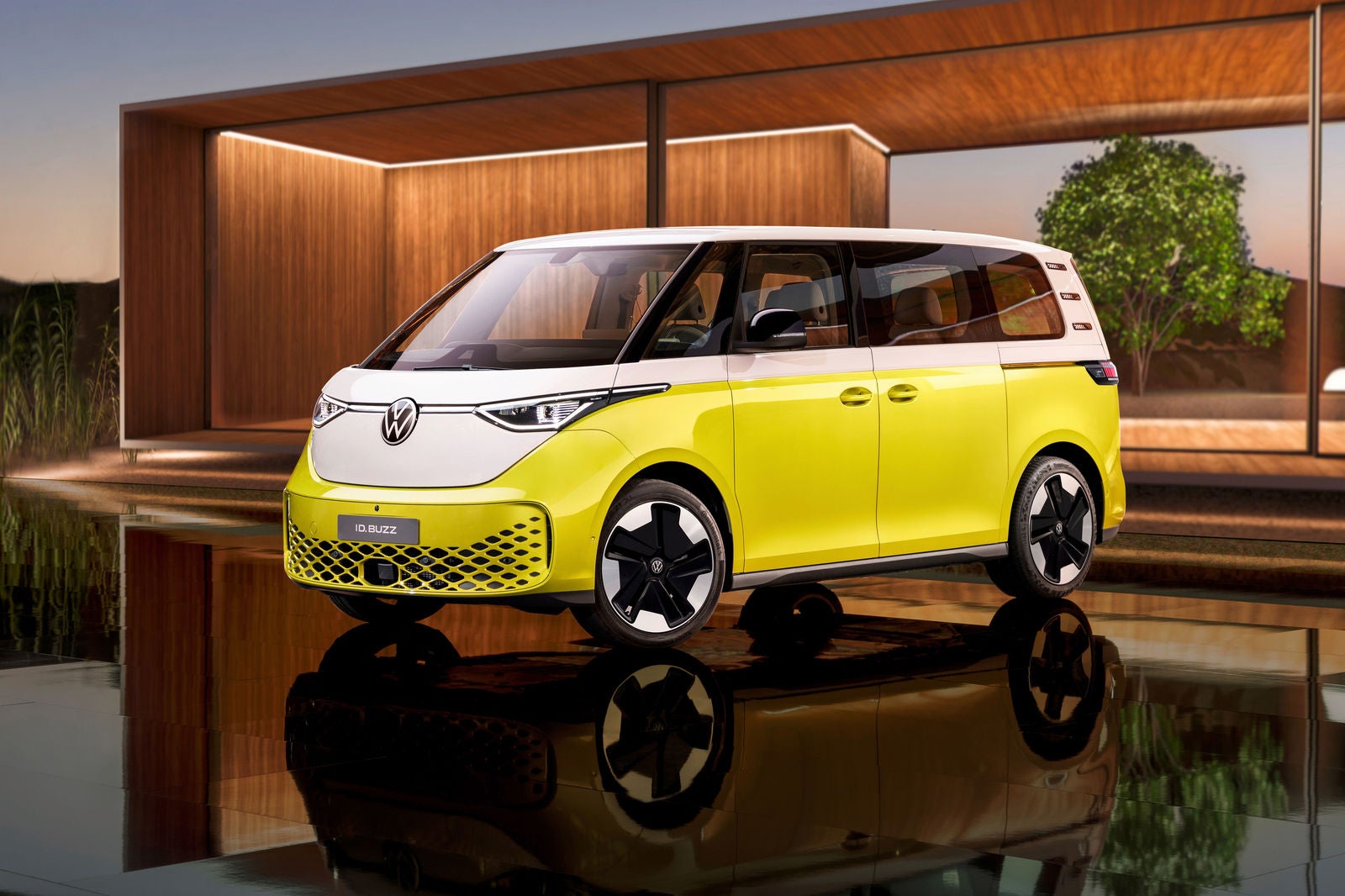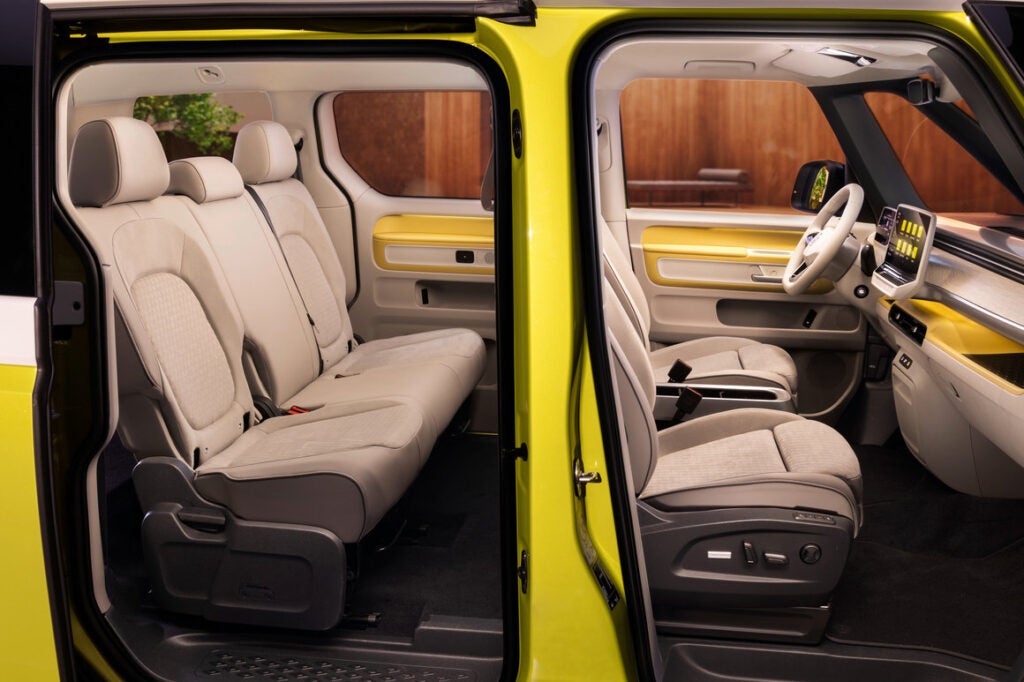
Volkswagen has shown the production model versions of its new all-electric ID. Buzz and ID. Buzz Cargo, which go on sale in the autumn in Europe.
With the ID. Buzz, Volkswagen of America will also be initiating the comeback of the so-called microbus in the USA and Canada.

Discover B2B Marketing That Performs
Combine business intelligence and editorial excellence to reach engaged professionals across 36 leading media platforms.
The ID. Buzz, which is built by Volkswagen Commercial Vehicles in Hannover, is also based on the VW Group’s Modular Electric Drive Kit platform (MEB). We caught up with chairman of the board of management at Volkswagen Commercial Vehicles Hannover, Carsten Intra, to tell us more.
What was the biggest challenge that Volkswagen Commercial Vehicles had to master after the concept car shown in 2016?
Both studies the ID.Buzz and the ID.Buzz Cargo have been very well received by the audience worldwide. We are now presenting the production version of those models ready for market launch.
At the same time, we are producing the T6 and the new multi van at the Hannover plant which are based on another platform, so we are talking about a high level of complexity, logistics and production.
I am very proud that we at Volkswagen Commercial Vehicles have mastered this great challenge because we have an outstanding team and best in class competencies.
Volkswagen and Volkswagen Commercial Vehicles are launching the ID.Buzz together. Why does this make sense?
Both brands have a very broad customer base, we have therefore agreed to combine our sales, marketing, and communication activities.
This will enable Volkswagen Commercial Vehicles to perform not only in Europe, but also in the US where Volkswagen passenger cars are already a very successful brand with the ID.4.
We have also worked together during the development of the vehicles. The ID.Buzz is based on a modular electric platform from Volkswagen passenger cars which provides us with state of the art technology.
How will the electrification continue regarding the commercial vehicles?
The next step is to expand the ID.Buzz programme, different battery sizes for different customer needs, additional drive concepts, further variants, longer wheel base, even an ID.California.
We still have a lot of dreams and ambitions.
How important is sustainability in the ID.Buzz programme?
Both versions of the ID. Buzz are pioneering in terms of their sustainability: their manufacture and shipping has a carbon-neutral footprint. We are also using recycled synthetic materials and the interior is completely free of any real leather.
And we hear there are possible future mobility or autonomous ideas also?
The ID. Buzz will also be used for future autonomous mobility concepts such as ridepooling – an e-shuttle service of Group subsidiary MOIA that can be booked via an app. The electric Bulli is thus also a part of the future of inner-city transport.

Hanover production basics:
- The ID. Buzz model line is being produced by Volkswagen Commercial Vehicles at its main plant in Hanover. The majority of the electric drive system modules being supplied to the plant for this purpose will also be made by the Group’s own Volkswagen Group Components division.
- Since 2022, the Hanover plant has been one of the VW Group’s high-tech locations for the production of all-electric vehicles. In Hanover, VW plans three-pillar ‘Bulli’ product – two of them electric: The ID. Buzz and ID. Buzz Cargo leave the production line as zero-emission vehicles.
- The Modular Electric Drive Kit (MEB) architecture is a VW Group scalable mass production platform for VW electric vehicles across group brands. VW says the architecture allows for an evolutionary approach to the development of software and technology, which not only benefits new models such as the ID. Buzz, but also models that have already been delivered, by means of over-the-air (OTA) updates.






